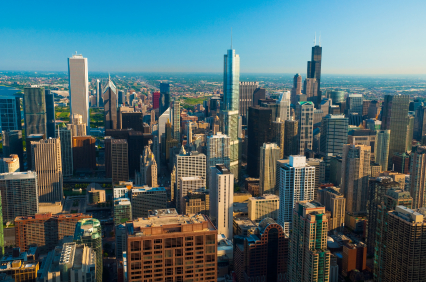 |
There is no such thing as a popular strike. When a strike involves teachers, students and their parents, you are looking at a perfect PR storm.
That’s exactly what's brewing in Chicago as its teachers and support staff went on strike on Monday, Sept. 10, the first teachers' strike in that city in 25 years.
So while nearly 26,000 teachers took to the streets in protest of their contract against the nation’s third-largest school district, thousands of school children were left with a surprising day off. With no end in sight, that single day off is likely to stretch into a “vacation, ” leaving parents and guardians in a bind and the city of Chicago with a full-blown crisis on its hands.
Teachers look like they are abandoning the kids while the city government looks like it undervalues teachers. When it comes to the labor issues involved, both sides may have their points, but when it comes to PR, both sides are already on shaky ground with the public.
Crisis management and reputation issues face both the teachers union and city public schools now face. Can negotiations take place and an equitable solution come to be without both sides suffering major PR hits? Is that even a possibility?
“Indeed this is a “lose-lose” for the city government and the teachers’ union," says Nick Kalm, president, Reputation Partners, LLC of Chicago. "Both are suffering considerable reputational damage. For the city, they need to clearly articulate what they offered and why they aren’t willing to accede to the union’s demands. For the union, they are not doing a very good job of articulating how these strike issues are really about the students – and not about the teachers/union and their interests. Both sides need to acknowledge the tremendous impact the strike is having on families for whom City schools are the only place many students can go to get a meal and be safe.”
Until the strike comes to an end, both sides need to keep the follow three tips in mind to help minimize the PR crisis:
- Keep the kids first: A school strike, no matter whose side has the better argument, ultimately hurts the children. As both sides debate, it’s key to at least appear that the best interest of the 400,000 students in the public school system are the top priority. On Sept. 10, doors were opened for breakfast, lunch and a 55-minute activity period. Churches and area centers have also been designated as safe havens for children. The decision, albeit a minor one, shows that the children have not been forgotten
- Keep the public informed: Any inkling the public gets that either party is not being transparent with what is going on does not bode well. Both sides Web sites and social media channels are up to date with the latest information on the strike. The importance of social media is never more pronounced than in a situation like this. The public will want answers and information at a rapid pace and will be looking to the Internet to be the source of that information.
- Have a plan ready: No group wants negative press, even in the middle of a labor dispute. However, the longer the strike, the less patience the public will have. In any crisis that threatens an organization’s reputation, a plan must be in place to respond before, during and after. Both the Chicago Teachers Union and the city public schools must have a plan in place to react quickly to negative coverage, do its best to end the crisis as quickly as possible and then have plans to re-build their damaged reputations in the aftermath of the strike.
Follow Jamar Hudson: @jamarhudson
